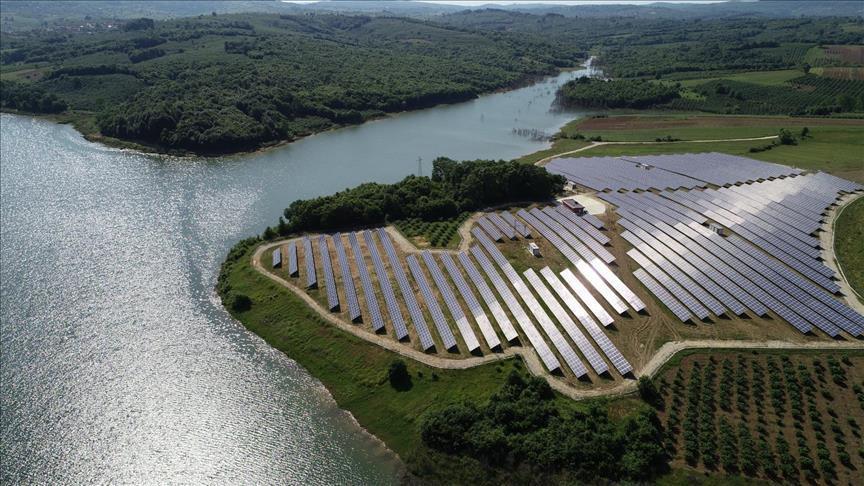Wind and solar generation in Turkiye reached a capacity over the past 12 months sufficient enough to replace $7 billion in gas imports, according to a new analysis by London-based think tank, Ember, on Tuesday.
The increased generation from wind and solar, which stood at 46.3 terawatt-hours in the last 12 months, comes at a critical time for the country which is suffering from soaring electricity prices.
The depreciation of the Turkish lira, and similar to many countries, the seven-fold rise in gas prices globally has led to a six-fold surge in electricity prices in the country.
This rise began in the second quarter of last year and almost doubled in July and August last year, reaching $50 per megawatt-hour.
This further accelerated in September when the average monthly gas price hit $90 per megawatt-hour.
Supply and demand imbalances together with geopolitical disputes drove the increase in fossil gas prices up last year, and this pattern continued this year, supported further by Russia’s war against Ukraine.
The analysis reports that amid high fossil fuel prices, wind and solar played a critical role in lowering electricity bills in Turkiye, which it said would have been even higher without their contribution.
“Every unit of renewables generation prevents the production of a unit of electricity from fossil fuels and the corresponding fossil fuel imports. Similarly, any unrealized unit of renewable generation will be compensated by fossil fuel imports,” Ember says.
Wind power plants took the lion’s share in import savings of $5 billion by generating 32.2 terawatt-hours of electricity in the last 12 months.
Solar power plants accounted for $2 billion of import savings, with a generation rate of 86% from unlicensed solar power plants.
From the beginning of the war in Ukraine on Feb. 24 up until the end of April, wind and solar generation in Turkiye replaced a potential $2 billion in fossil fuel imports.
“We expect roughly $700 million savings in gas imports thanks to wind and solar generation every month if the price of gas remains at these levels,” the analysis says.
-Energy crisis needs speedy solutions like wind and solar
Ufuk Alparslan, Ember’s electricity and climate data analyst and lead author of the analysis, urges for the scaling up of solar and wind capacity, as the energy crisis needs quick solutions, like solar power, which can be deployed very fast and as “renewable energy could do more with the right policy.”
“Gas prices and the weak currency lead to high electricity prices in Turkey while renewables prevent billions of dollars of fossil fuel imports,” Alparslan says.
“After the end of the feed-in tariff, the free market and the auctions will be the main routes towards new renewable deployments in Turkey. However, the capacities reserved for wind and solar power need to be scaled up dramatically and the market interventions damaging the investment appetite in the country should be avoided,” he says.
The analysis finds that gas-fired power plants in the country have determined electricity prices given that this most expensive power source accounted for about one-third of electricity generation last year.
Turkiye is 99% dependent on gas imports leaving the country vulnerable to rising costs. Turkiye’s natural gas consumption set a new record in 2021 of approximately 59 billion cubic meters.
Consequently, Ember calls for the acceleration of wind and solar to lower electricity bills and the removal of obstacles disrupting new investments.
Renewables accounted for 97% of new capacity increases in the country last year. By the end of March this year, Turkiye’s total installed electricity capacity reached over 100 gigawatts, with more than half from renewables, including hydro, wind, solar and geothermal.
However, despite this sizable contribution, it is still not enough to meet the surge in demand in recent years.
The analysis advocates for the speedy deployment of solar panels, which it says would play a key role in the fight against rising fossil fuel prices and high electricity bills.
Although Turkiye has the highest solar panel manufacturing capacity in Europe with an annual capacity of 8 gigawatts, only 1 gigawatt is added every year, according to Ember.
By fully utilizing its domestic solar panel manufacturing capacity, Turkey can further reduce electricity bills by replacing costly fossil fuel imports, the think tank says.
By Nuran Erkul Kaya
Anadolu Agency
energy@aa.com.tr


